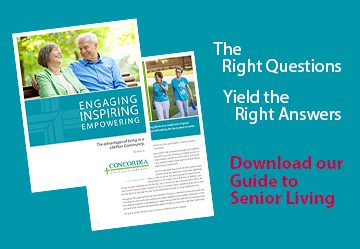
How to Reduce Caregiver Stress
The Importance of Avoiding Caregiver Burnout
Recent research shows that over 44 million Americans provide unpaid care to senior family members, friends or a disabled adult. Of these caregivers, an overwhelming majority (one out of three) reports their stress levels as high, and that their caregiving duties often force them to miss out on doing some of the things they most enjoy.
Providing care for a senior family member or friend can be a rewarding experience with benefits for both the caregiver and the recipient. However, when caregivers put so much effort into caregiving duties that they start to neglect their own well-being, they also begin to suffer mentally, physically and emotionally.
Signs of Caregiver Stress
Throughout the stages of caregiving, caregiver stress syndrome occurs when providing care to an aging loved one leads to mental health issues like anxiety or depression, as well as physical health problems such as high blood pressure, diabetes, a compromised immune system and more. Some caregivers even report an increase in the use of drugs or alcohol.
A few of the signs of caregiver stress include:
- Feeling overwhelmed or irritable.
- Changes in mood or personality.
- Having low energy levels.
- Sleeping too much, or not getting enough sleep.
- Changes in your weight due to trouble with eating properly.
- Becoming socially isolated from friends and family.
- Losing interest in activities or hobbies you’ve always enjoyed.
- Feeling resentment or anger at the person you are caring for or others.
Even the most resilient person can be affected by the mental, physical and emotional demands of caregiving. When you’re experiencing too much negative stress, your health begins to suffer as it becomes difficult to properly take care of your own needs. And as a caregiver, if you aren’t as healthy as you possibly could be, you won’t be able to provide the best level of care to your aging loved one.
Seeking Caregiver Support to Avoid Stress and Burnout
If you’re noticing any of the signs of caregiver stress above, it’s important to take note and attend to your own needs. Caregivers often get so immersed in their caregiving duties that they fail to realize their own health is suffering, or even that they’ve developed some chronic health conditions. While it can be difficult for caregivers to admit they need some help with their responsibilities, seeking caregiver support can help them avoid the burnout they’re experiencing.
A few ways to reduce caregiver stress include:
- Joining a support group. A caregiver support group not only offers a great way to let off some steam, but to also make new friends who are going through a similar experience. Sharing stories and advice can help ease some of the stress a caregiver may feel, knowing there are others facing similar issues who can relate to their life.
- Staying as physically healthy as possible. Caregivers should make sure they are maintaining optimal physical health by eating right, exercising often and getting an ample amount of sleep each night. They should set easy goals to incorporate physical activity into each day, like taking their loved one for a walk around the block every morning.
- Asking for help from others. Caregivers should remember there is no shame in contacting other family members and asking for help every once in a while. Or, should others offer to help, be prepared with a list of ways that assistance can be utilized, like driving the elderly loved one to a doctor’s appointment or sitting with him or her while the caregiver runs personal errands.
- Staying socially connected with family and friends. Along with accepting help from others, it’s important to avoid social isolation as a caregiver. Being socially isolated can easily lead to depression, so it’s important to set aside some time each week to visit with friends or family. Maintaining a strong support system is crucial to managing caregiver stress.
- Seeking assisted living services. There might come a time when a family caregiver can no longer provide the best quality care for an aging loved one and they need to move out of a more independent living-style situation with a caregiver. This is when moving to an assisted living community may be the best option to ensure loved ones are living the fullest life possible.
Caregiver Support at Concordia
Every second and fourth Tuesday of the month, join Concordia for our Caregiver Support Meeting hosted by our caregiving expert, Mel Roberts. This event is open to the public, and offers resources and support to those who need it most. Please call (405) 720-7200 to RSVP or fill out our form today.
Caregiving

